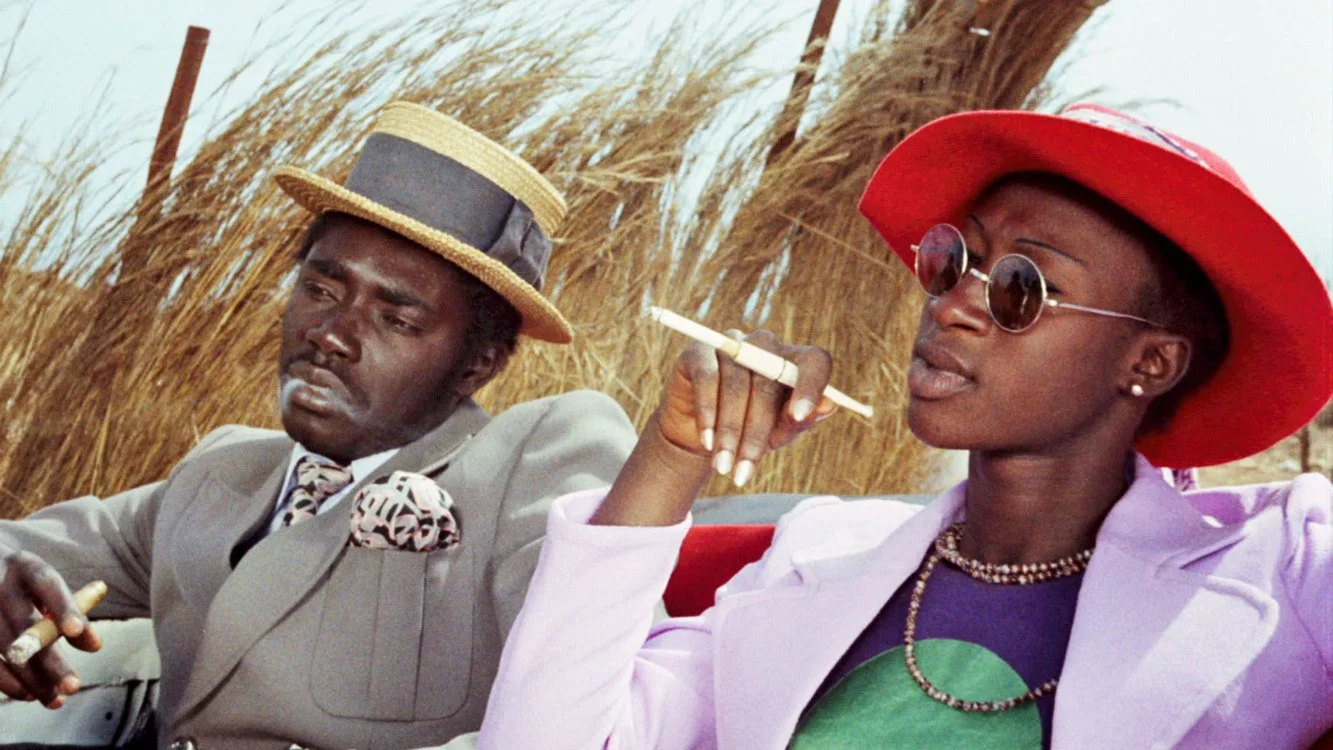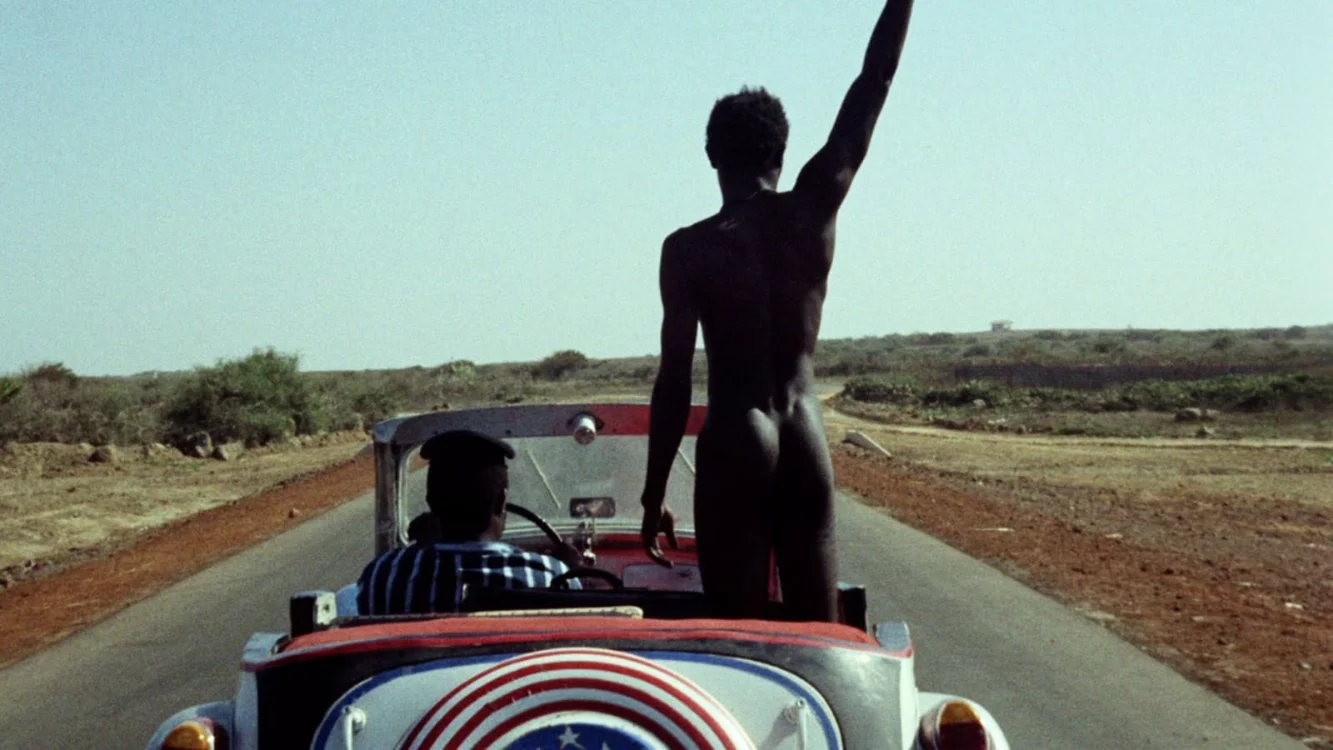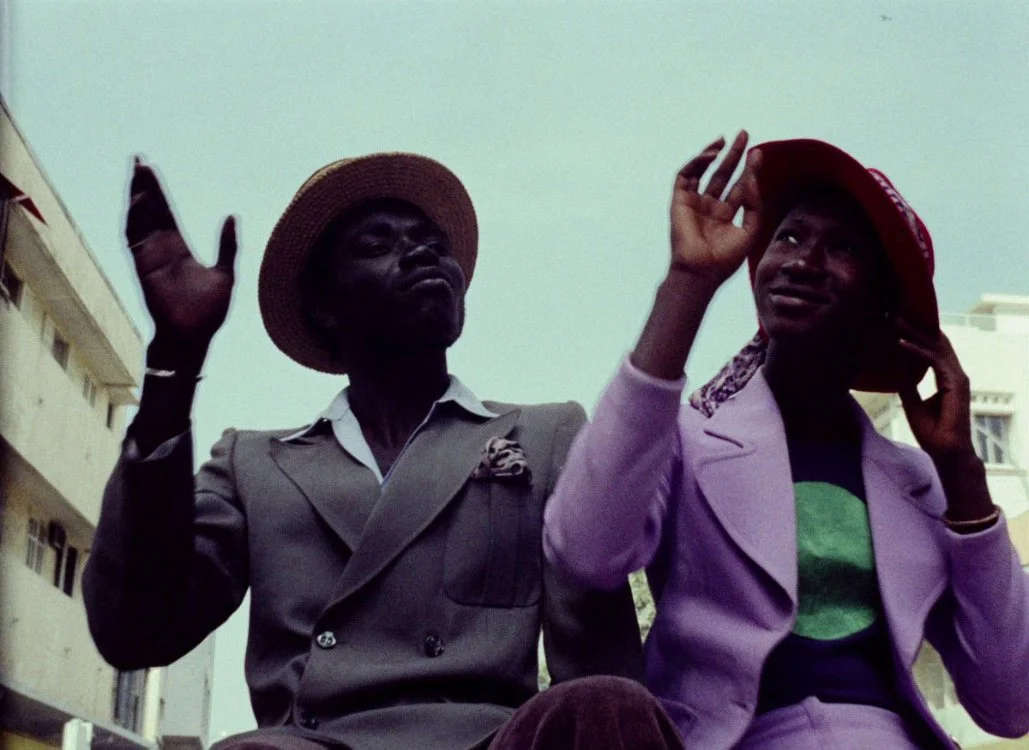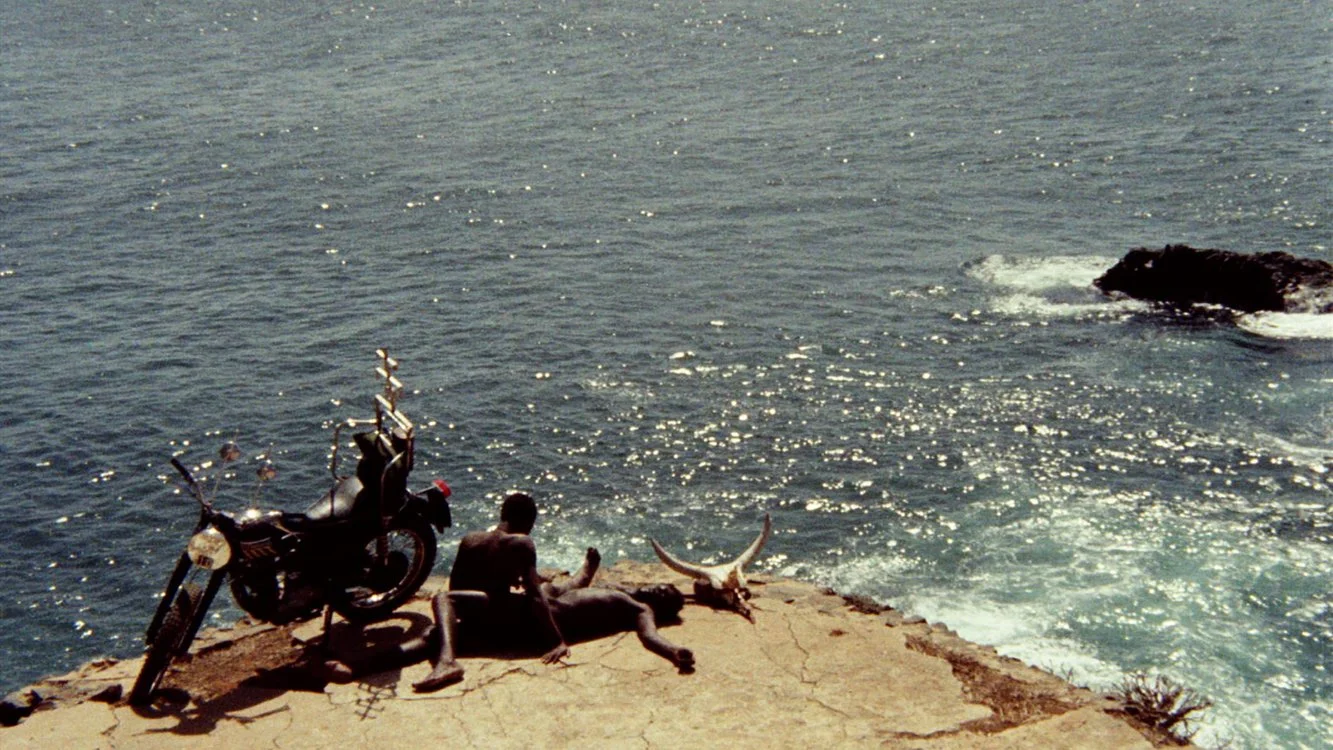Touki Bouki Gifts Freedom Through African Surrealism
Touki Bouki, a sun-baked experimental film, wasn’t in your face like the oppressive-idleness post-colonial Senegal was facing, and the ending although bittersweet, challenges the ‘on the run’ trope in a thoughtful way: are we running from a feeling or a place? Instinctively, in 1973 Djibril directs Touki Bouki as an African-styled homage to migration, freedom, and tradition, whilst staying true to Third Cinema values, forfeiting the glossy Hollywood treatment.
Touki Bouki translates to ‘Journey of the Hyena’ in Wolof, one of the widely spoken languages in Senegal’s capital, Dakar. The funny but loose plot follows lovers, Mory a cattle herder and Anta, a disillusioned university student who together, feel alienated by life in Dakar and seek to trick, taunt, and thieve their way to a better one in Paris. The allure of Paris seems to transcend cultures and Josephine Baker’s song, ‘Paris, Paris’, which is chopped throughout the film supports Mory and Anta’s case, as they try to flee Dakar, delirious for a taste of paradise. This dream of migration is all too familiar, as musical icon Josephine Baker famously renounced her American citizenship for a French one.
Djibril gathers sympathy for the couple as we see how the conflict between traditional African customs and Francophone dreams are weaponised against them. When Mory is standing naked giving a lengthy speech at the back of a moving car, he is full of pride, “Here comes a griot from the M’bai family”, a griot being a traditional occupation where storytelling and music coincide to preserve history orally. But the mood is tense earlier on, when Anta approaches her university and is harassed by young revolutionists who feel that she is no longer for their liberal agenda. In the following scene, these same revolutionists violently accost Mory who rides in looking for Anta—they remove his white bull skull from his motorcycle and tie him to their truck. This continues the theme of confusion or displacement, with Mory’s skull representing traditional Dakar and the revolutionists posing as the hybridisation of French-Senegal. So, although the idea of running away may not be a long-term solution, the immediate relief it brings to the couple’s troubled existence is better than doing nothing at all.
The editing of Touki Bouki uses colour to catapult back the joy missing into our main characters’ lives and perhaps that of the people of Senegal. Even the slum-style shacks of the towns are vibrant, the easy attire of everyday people and the regal city utopia, of pastel blue, white and yellow buildings, stand fresh with hope. In their final desperate attempt, the clothes Mory and Anta steal are also deliberately colourful, so when they are welcomed back into their town like royalty, a celebration ignites and they of course look the part in deep purple, red, yellow, and white. This signature colour palette amidst the on-screen chaos, exhibits Dakar as its own unique paradise and for a moment the couple seem happy.
Although Independence is very powerful, it may feel lonely, which parallels Djibrils lack of financial freedom for filmmaking at the time. Nevertheless, Touki Bouki’s colour palette, choppy sound editing, and frenetic pacing fills that void with so much play and fullness. And with a budget of $30,000, Djibril proved that he could make a shaky yet stellar film without the approval of French powers overseas. Djibril sprinkled an ephemeral quality into Touki Bouki, which was humour, Africanism, with an added undercurrent of visual exhilaration so we could escape, laugh and not think too much.










